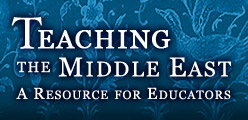How Does Migration Change the Makeup of the Middle East and Affect Identity Formations?
In the 1960s, in the aftermath of the independence struggles of the North African states, large numbers of people migrated to France. Many came from the ranks of those who had sided with the French in the independence struggle, European settlers (the so-called pieds-noirs, who had Arabized to some degree), minority groups such as Jews not confident about their chances in the newly independent states, and those who simply sought their chances in the industrial West. Over one million people were believed to have left Algeria in 1962 alone; the picture was less dramatic, but comparable in Morocco and Tunisia. A different kind of migration to Western Europe was initiated by the German government’s guest-worker program, concluded with various countries at various times, but most particularly Turkey in 1961. Today over two million people identified and identifying as Turks and Kurds live in Germany. Numbers are very difficult to establish, and, as always, questions of ethnicity are not easy to pin down, since official and everyday reckonings of identity can often be different. Often the victims of racism, economic marginalization, and everyday forms of discrimination, North Africans in France and Turks and Kurds in Germany have developed complex senses of identity partly based on religion, partly on ethnic identification, and partly on a shared sense of outsider-ship in relation to white French and German society. This has given rise, in recent decades, to significant movements in literature, cinema, and music (consider, respectively, French-Moroccan author, Taha Ben Jelloun, Turkish-German film-maker Fatih Akin, and French-Algerian singer Khaled). Migration to Western Europe in particular has played an important role in shaping Middle Eastern senses of identity. Extensive Diasporic communities have also been caused by wars and political violence in the region. Palestinian refugees in many neighboring Middle Eastern states (notably Syria, Jordan, and Lebanon) have found themselves politically marginalized in host societies; these conditions bring together disparate groups, belonging to different religious communities, speaking different dialects, and establish new senses of identity.

 Martin Stokes
Martin Stokes
Fellow of St. John’s College, Oxford University
Guiding Questions
1. Who gets to decide a group’s identity? How do power dynamics affect these labels?
2. How have dominant and revolutionary political groups used ‘ethnicity?’ Describe the use of ethnicity to alienate and unite various groups of people.
3. Why does ethnicity change in context? How is ethnicity affected by time and place? How is ethnicity changed by immigration?


 Print Page
Print Page


